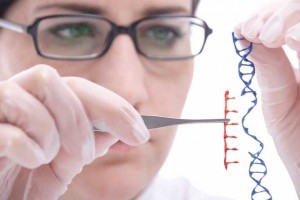
OBAMA & CONGRESS WILL CONTINUE GENETIC & BIOTECH RELATIONSHIP FOR FINANCIAL GAINS
Susanne Posel
One of Obama’s endeavors is to empower the genetic and biotech industry with the support of embryotic stem cell research. In May, Obama announced that the pharmaceutical corporations and US government were combining forces to find new uses for already established drugs.
The focus of this collaboration will identify new uses for drugs that have already been approved by the Food and Drug Administration (FDA). There may be need for new human trials, putting the general public at a health risk. Engaging in experimental trials to classify specific compounds to be utilized for unintended purposes is highly dangerous.

Genetic engineering has led researchers to discover over 4,500 diseases that need pharmaceutical drugs to combat.
“We need to speed the pace at which we are turning discoveries into better health outcomes,” said Dr. Francis Collins, of the National Institutes of Health (NIH). “NIH looks forward to working with our partners in industry and academia to tackle an urgent need that is beyond the scope of any one organization or sector.”
The National Institutes of Health (NIH) will begin working with Pfizer Inc, AstraZeneca Plc and Eli Lilly and Co. in agreements to create compounds to be made available for trial use in a planned project.
“Americans are eagerly awaiting the next generation of cures and treatments to help them live longer and healthier lives,” Health and Human Services Secretary Kathleen Sebelius said in a statement. “To accelerate our nation’s therapeutic development process, it is essential that we forge strong, innovative, and strategic partnerships across government, academia, and industry.”
This alliance was further solidified after the US Senate gave their approval to the Food and Drug Administration (FDA), in conjunction with certain pharmaceutical corporations, for a $6.4 billion “agreement fee” in the new Food and Drug Administration Safety and Innovation Act, S. 3187 (FDASI).
Drug manufacturers like Eli Lily & Co, Pfizer Inc, AstraZeneca Plc, and Medtronic Inc will provide regulatory reviews of new medical treatments and healthcare devices. The FDASI extends through to 2017.
The focus of this collaboration will identify new uses for drugs that have already been approved by FDA. There may be need for new human trials, putting the general public at a health risk. Engaging in experimental trials to classify specific compounds to be utilized for unintended purposes is highly dangerous.
Drug manufacturers and medical device makers are anxious to work with the US government. This will mean their treatments will be reviewed and approved faster than they currently are. The FDASI specifies that certain measures be taken to expedite the approval of medical treatments under the guise of “life-threatening” or rush monitoring devices to mitigate drug shortages.
Thiroridazine, a “last resort” drug for schizophrenics, is now purported to have thioridazine. Scientists are claiming that according to their extensive research, which solely consisted of analyzing thousands of different drugs to determine if they possessed anti-cancer effects have selected thioridazine. This dangerous pharmaceutical is expected to be used to select and eradicate cancer stem cells that are found in leukemia, several other cancers: breast, blood, brain, prostate, ovarian, lung and gastrointestinal.
Scientists claim that this hazardous pharmaceutical can be administered in cancer therapies; without the health threatening side effects of current drugs on the market. It is being advertised as an alternative to chemotherapy and radiation.
When Obama established the National Bioeconomy Blueprint the administration was seeking to support genetic engineering as a main component of “American innovation and economic growth”.
The Bioeconomy Blueprint will allow federal agencies to coordinate with each other and form relationships with private sector corporations to control employment and the economy while strangle-holding energy technologies as allocated by the President’s initiative.
Obama’s focus is to deregulate the genetic engineering industry in order to allow those sciences to develop unadulterated projects without opposition. Through support of research and development, the US government will protect bioinventions that facilitate the move from laboratory to consumer market as quickly as possible.
By empowering private corporations through governmental collaborations the US government can oversee and control resources, knowledge and how those partnerships succeed or fail. All federal agencies will be allocated to communicate under the guise of “improving health outcomes and reducing healthcare costs.
The bioeconomy will encompass rural and urban employment while overseeing all health, medicine and agriculture that has any social benefit. Regulatory agencies will be given advantage by having unlimited access to pharmaceutical data to expedite drug production and development. The forming of close relationships between federal agencies and private corporations is Obama’s focus for a successful transition into the bioeconomy.
Organ regeneration, repairing damaged organs, and other technological advancements in the medical industry are being championed by stem cell research. Specifically, embryotic research, are expected to unite the scientific community by discovering new ways to boost the human immune systems and reverse the effects of debilitating diseases.
Researchers are pursuing custom, lab-grown replacement of organs, rather than relying on organ donors. Experts in the field of regenerative medicine want to see this development become the future of medical treatment.
Because of these potentials, the investment into research and development by the US government through agencies like the NIH will received a portion of a $4 billion financial venture.
Earlier this year, Obama approved the use of aborted fetuses for the sake of research, to be used by corporations. These specimens are taken after an abortion and used for “scientific study”; however this relationship between government and genetic research is more about profits and less about public safety.
Susanne Posel’s Website is Occupy Corporatism.

